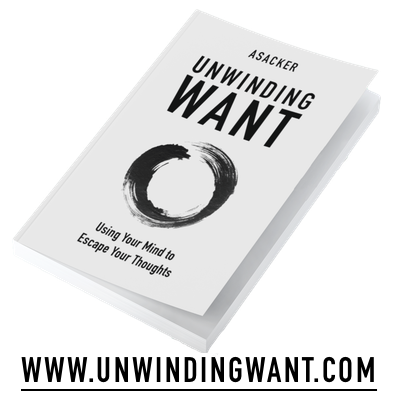Unconscious philosophy is dangerous philosophy.
Why unexamined beliefs are the greatest threat to wellbeing and flourishing.
“We cannot solve our problems with the same thinking we used when we created them.” ~ Albert Einstein
If you’re the kind of person who thinks deeply or challenges assumptions, you’ve probably heard it—or you will: “But is it practical, or just philosophical?” It’s the kind of question people ask when they don’t know how to make sense of what really matters. And baked into it is a false choice, as if deep thought and real-world impact are somehow opposed. In truth, that tension is where the most meaningful work begins.
The most practical people I know are also the most philosophical. And the best philosophers are intensely practical. This supposed tension between thinking and doing is one of the most damaging illusions in contemporary thought. We’re told we must choose: retreat into abstract contemplation or roll up our sleeves and get things done. This framing isn’t just wrong—it’s backward.
When someone tells me they’re “just being practical,” I know I’m dealing with someone who hasn’t truly thought through their beliefs and actions. They may think they’re avoiding philosophy, but in reality they’re just operating on unexamined philosophy. Every time they define a problem, they’re revealing what they believe about the world. When they choose what to focus on, they’re taking a position on what matters and why. When they decide what counts as a good solution, they’re making philosophical judgments.
The person who believes they’re being purely practical is often the most philosophically naive, precisely because they refuse to examine the very assumptions and frameworks that guide them. They aren’t being non-philosophical; they’re being unconsciously philosophical. And that’s far more dangerous.
Unexamined beliefs don’t just distort decisions—they power the very systems that destroy what we value. That’s how we end up feeding Moloch: the monstrous force that emerges when individuals act rationally within flawed systems, driving collective ruin. Think arms races, ecological destruction, the soul-crushing “race to the bottom”—where companies pursue efficiency at the cost of humanity, schools teach to the test to chase funding, and people burn out chasing metrics that have nothing to do with real success.
Now add AI—amplifying those same flawed incentives at machine speed. Moloch evolves, accelerating with every philosophically shallow algorithm, every metric-optimized decision. It’s the invisible hand turned against us—built from our own blind spots, and now automated.
This isn’t just abstract theory. Even in areas that may seem less headline-grabbing—like leadership training—we see the same dynamics at play. Globally, we pour an estimated $366 billion into it every year, with the U.S. alone accounting for a staggering $160 billion. Yet despite this massive investment, most organizations see little to no real impact. Why? Because too often, these efforts focus on delivering “content”—more tools, techniques, and frameworks layered onto misguided assumptions—instead of transforming how leaders actually perceive, think, and act through rigorous self-examination.
It’s a prime example of unconscious philosophy in action: a huge practical expenditure, guided by an unexamined, flawed philosophy of how change truly happens. The outcome isn’t just poor ROI, but leaders ill-equipped to tackle the very Molochian challenges we discussed—leaders who remain blind to the invisible forces shaping their behavior, even when they “know better.” And when leaders are guided by distorted beliefs, it’s not just performance that suffers—it’s the wellbeing of their people, their cultures, and the long-term health of their organizations.
Real pragmatism requires rigorous philosophical thinking. If you want to solve problems effectively, if you want to avoid the emergent, collective madness that results when everyone optimizes narrowly, you need to deeply understand what the problem actually is. You need to know why your chosen approach might work, and what you’re genuinely trying to achieve.
Real pragmatism requires you to look beyond the immediate fix and anticipate the unintended consequences that often arise when we pursue narrow goals without a broader ethical and epistemological framework. Just throwing solutions at challenges and hoping they stick is precisely how collective action problems fester, how systems designed for good twist into something destructive.
This is why I work my ass off to make sure my philosophy is relentlessly pragmatic. Not because I avoid deep questions, but because I insist that every idea, every method, and every goal should be tested against reality. Philosophy that doesn’t help you live more wisely and act more effectively isn’t philosophy—it’s brain games for the bored and bright. And pragmatism that doesn’t wrestle with deeper questions about what truly works, for whom, and over what time horizon isn’t pragmatism—it’s just reactive fumbling. It’s a blind chase after short-term wins that only serves to strengthen Moloch, that collective self-destruction born of unexamined assumptions and a lack of foresight.
The truth is that the most pragmatic approach to any meaningful problem is necessarily philosophical, and any philosophy worth its salt must be ruthlessly practical. Philosophy, properly understood, isn’t the enemy of practical action but its most reliable foundation. It’s the only path to foresight, to understanding the hidden incentive structures that create these collective traps, and to designing systems and lives that promote genuine care and cooperation. And pragmatism, when pursued with genuine rigor, inevitably leads us into the deepest philosophical waters—the only place where we can truly understand and disarm the systemic forces that seek to undermine our shared progress and wellbeing.
Stay passionate!






But, who’s got time for pragmatism?! (Sarcasm.) We’ve always got time in a crisis. Never time to avoid one, however. Better to be agile! 🤦🏻♂️